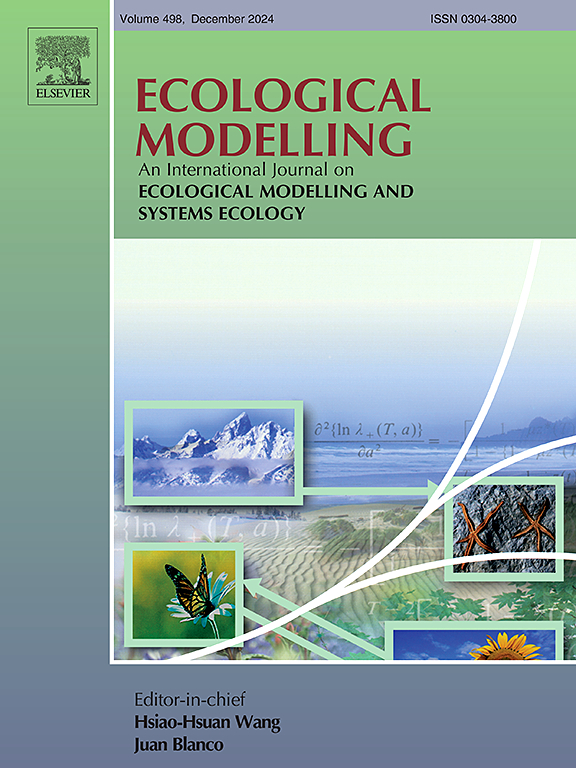H.T. Odum and sustainable development
IF 3.2
3区 环境科学与生态学
Q2 ECOLOGY
引用次数: 0
Abstract
H.T. Odum did not use explicitly the concepts of sustainability or sustainable development in his writings to any large extent. This is not surprising since the concepts were not established until late in his career. When he explicitly used the concepts, his focus was mainly on pulsing patterns, where oscillations can form a quasi-steady state when considered over a longer period. For humanity Odum showed special interest in the descent phase of the current extraordinary fossil fuel pulse, and used the concept ”a prosperous way down” to address the possibilities alongside the challenges in this phase. Not using the concepts did not mean that Odum was not interested in the concepts. On the contrary, Odum’s legacy does include features that are important to other parts of the sustainability debate beyond just a possible descent. Of high interest is the normalization procedure that merge natural science based flows of energy, matter, and information, with flows of money, and present them all in the same unit: solar emjoules (sej). This aspect and the strong network focus aspect in Odum’s publications render his analyses as highly relevant to sustainability questions. Two main aspects of sustainable development and sustainability not addressed by Odum were considered and addressed in this paper with H.T. Odum’s Energy Systems Language: 1) economic capital substitution connected to the paradigms strong and weak sustainability, and 2) limits or no limits. Of them only the paradigm of limits was found to have been addressed by H.T. Odum.

奥达姆与可持续发展
H.T. Odum在他的作品中并没有在很大程度上明确地使用可持续性或可持续发展的概念。这并不奇怪,因为这些概念直到他职业生涯的后期才建立起来。当他明确地使用这些概念时,他的重点主要放在脉冲模式上,当考虑更长时间时,振荡可以形成准稳定状态。对于人类来说,Odum对当前非同寻常的化石燃料脉冲的下降阶段表现出特别的兴趣,并使用“繁荣下降之路”的概念来解决这一阶段的可能性和挑战。不使用这些概念并不意味着Odum对这些概念不感兴趣。相反,奥达姆的遗产确实包含了对可持续发展辩论的其他部分很重要的特征,而不仅仅是可能的下降。人们非常感兴趣的是将基于自然科学的能量、物质和信息流与资金流合并在一起的规范化过程,并将它们都以同一个单位表示:太阳焦耳(sej)。这方面和Odum出版物中强烈的网络焦点方面使他的分析与可持续性问题高度相关。本文用H.T. Odum的能源系统语言考虑并解决了Odum未解决的可持续发展和可持续性的两个主要方面:1)与强可持续性和弱可持续性范式相关的经济资本替代,以及2)限制或没有限制。其中只有极限的范例被发现是由H.T.欧达姆提出的。
本文章由计算机程序翻译,如有差异,请以英文原文为准。
求助全文
约1分钟内获得全文
求助全文
来源期刊

Ecological Modelling
环境科学-生态学
CiteScore
5.60
自引率
6.50%
发文量
259
审稿时长
69 days
期刊介绍:
The journal is concerned with the use of mathematical models and systems analysis for the description of ecological processes and for the sustainable management of resources. Human activity and well-being are dependent on and integrated with the functioning of ecosystems and the services they provide. We aim to understand these basic ecosystem functions using mathematical and conceptual modelling, systems analysis, thermodynamics, computer simulations, and ecological theory. This leads to a preference for process-based models embedded in theory with explicit causative agents as opposed to strictly statistical or correlative descriptions. These modelling methods can be applied to a wide spectrum of issues ranging from basic ecology to human ecology to socio-ecological systems. The journal welcomes research articles, short communications, review articles, letters to the editor, book reviews, and other communications. The journal also supports the activities of the [International Society of Ecological Modelling (ISEM)](http://www.isemna.org/).
 求助内容:
求助内容: 应助结果提醒方式:
应助结果提醒方式:


